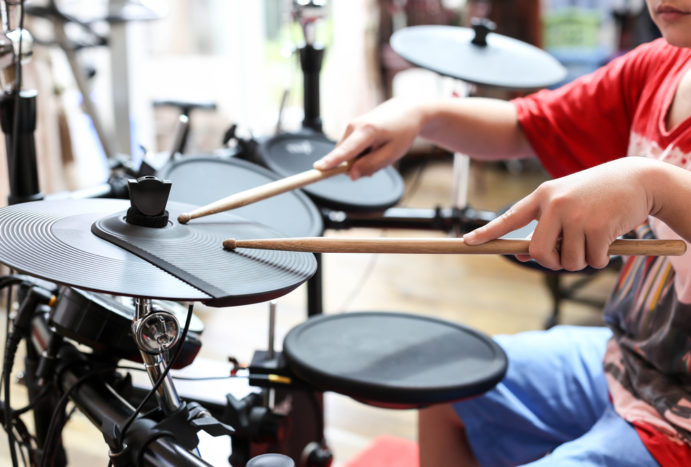Contents:
- Medical Video: Classical Music for Brain Power - Mozart
- First understand how the brain processes sound
- Research shows that music practice gives a positive development for a child's brain
- What are the benefits of other music for children's intelligence?
Medical Video: Classical Music for Brain Power - Mozart
Childhood is a phase where there are many important developments in the child. At this time, parents are not only required to monitor children's development, but also by encouraging them to be more stable in learning new things. However, did you know that music training is one way to help speed up a child's brain development? If you are still unsure, consider the following explanation.
First understand how the brain processes sound
Before finding out more, make sure you first understand the process of the human brain in translating music. Sound captured by the human ear will be connected to the brain with the help of the hearing system.
At first, the human ear receives sound in the form of vibrations of sound waves. These waves are then processed in the ear as a signal which will then be delivered to the brain.
The signal is then sent to a part of the brain called the auditory cortex (auditory cortex) The auditory cortex is responsible for capturing whatever sounds are heard, including music. The brain also catches the signal as a sound. This is when you realize you are hearing sounds or music from your ears.
In short, the sound of music is captured by the body and the ear is immediately processed to be immediately translated into the brain as sound. All these processes that will unconsciously help children develop their abilities.
Research shows that music practice gives a positive development for a child's brain
A study started in 2012 by Brain and Creativity Institute (BCI) at the University of Southern California with the Los Angeles Philharmonic Association and Heart of Los Angeles (HOLA), trying to prove the effect of music training on 80 children aged seven to eight years . The goal is to assess the extent of children's cognitive, social, and emotional development.
There are three different groups compared in research, namely children in music training foundations, children in soccer sports training programs, and children in ordinary schools. The study, which took five years, made a schedule to monitor the progress of the participants through a special test.
Language and memory abilities, the capacity to digest other people's music and speech, and the child's brain development are important points that are measured and assessed. In order to strengthen the results, the researchers also conducted in-depth interviews with the participants' families.
The results at the beginning of the study showed that there were no specific differences between groups of children who routinely took part in music training with the other two groups. Or in other words, the children's intellectual, motoric, musical and social abilities tend to be the same in all groups.
Uniquely, these results did not last long because after walking for two years, changes in research results appeared. Yes, in fact children in music groups have a very accurate ability to detect changes in the tone of the strains of different melodies.
Children who regularly take part in music training also have a brain response that is much stronger than their peers in other groups. In fact, brain development, especially sound processing and the development of language and mathematics, they also tend to be more rapid for the size of their age.
What are the benefits of other music for children's intelligence?
Overall, music training can improve children's academic abilities as well as higher intelligence quotient (IQ) scores. Why? Because music turns out to have "good relations" with various fields that develop in childhood.
As told by Lynn Kleiner, as the founder of Rhapsody Music in Redondo Beach in the United States, that music has a great connection with the field of mathematics. Because the rhythm, rhythm, and tone settings learned by children during music can help them understand the pattern of counts and fractions more quickly and easily.
Not only that, Mary Larew, a violin teacher at the Neighborhood Music School in the United States, added that there are still various exercises in music that help improve abilities in children.
For example, learning to read songs that can shape a child's short-term and long-term memory; playing a guitar and violin musical instrument can teach children about vibration and harmonious strains; to drums that give children the opportunity to develop other fields according to their talents.
Reaffirmed by one of the researchers, Assal Habibi, that the key obtained from this research in music training in children can be done in a short period. Even the two years spent by children to learn music can have a positive impact on overall brain development.
Besides that, the development of language and reading of children will also be much increased because this field involves the same brain area as music.














